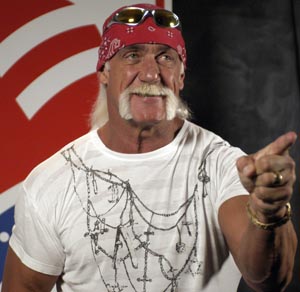March 19, 2016
For the first time, I'm cheering for Hulk Hogan

Hulk Hogan is not one of my favourite people, but I’m glad he won his case against Gawker. We might not care much about the privacy of a larger-than-life celebrity, but we should all care about the example this case sets for our own privacy.
Gawker posted a video of Hogan having sex with his friend’s wife. It’s tawdry, salacious and appeals to the basest of human instincts. So of course it drew millions of viewers.
A Florida jury decided this was a violation of Hogan’s privacy and awarded him $115 million.
In Canada, Hogan would have had a clear-cut case — you can’t distribute someone’s private image without their consent. Although this law is aimed at protecting young people from cyberbullying, there is no reason why it wouldn’t apply to celebrities as well.
In the U.S. there is a grey area that can be argued. Hogan’s actions took place in a private setting and he claims he no idea that he was being recorded. Still, he is a public figure who often reveals details of his private life for self-promotion.
Gawker’s lawyers have argued that within this context, it is reasonable for other parts of Hogan’s life to be revealed.
Within the letter of the law, Gawker may have a good point. The case is going to appeal, so we will be hearing a lot more about a public person’s right to privacy.
From an ethical point of view, though, I hope juries continue to uphold the principal of privacy. If they do, it will mean that the bar is set high for what is considered to be off limits. And that creates more protection for all of us.
Gawker has tried to argue that this a freedom-of-the-press issue. The implication is that if the state impinges on their freedom then it’s a slippery slope to everyone losing their freedoms.
But here’s the thing — if Gawker published a video of the president accepting a bribe, could they be sued for invading his privacy? The answer should be no. Not only is the president a public figure, but his actions in this case would be in the public interest.
That’s a lot different from pandering to prurient curiosity, and juries are smart enough to understand this.
